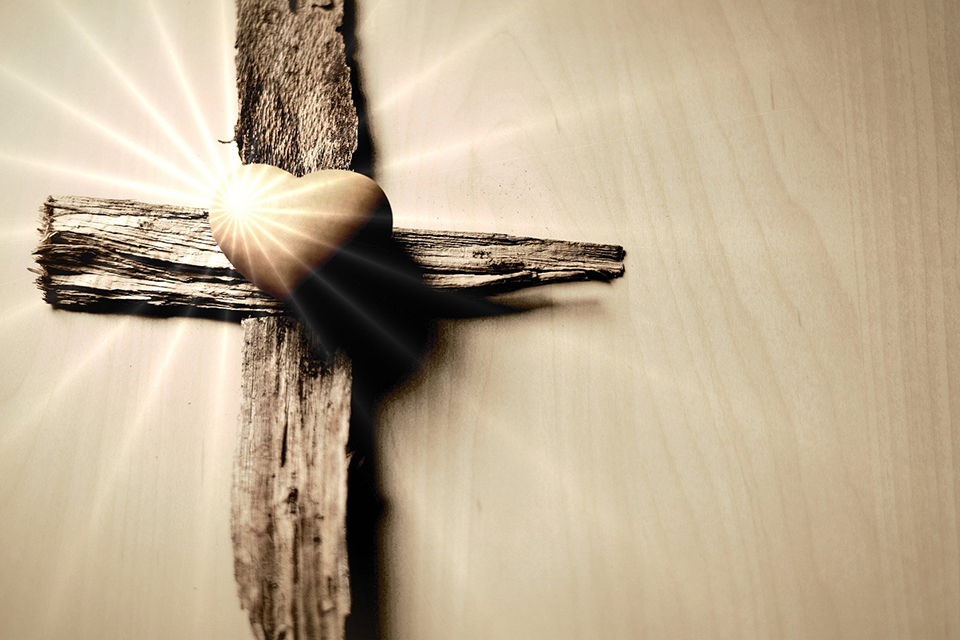
Jesus said very little the day of His crucifixion when He willingly suffered and died for our sins. But the words God the Son chose during those six hours were powerful. Billy Graham once explored seven of those Biblically recorded statements during a 1985 sermon in Hartford, Connecticut:
“My God, My God, why have you forsaken me?”
Reference: Matthew 27:46, Mark 15:34
What it means: Bystanders thought Jesus was calling for Elijah, the Old Testament prophet, from the cross. But really this comment is a callback to Psalm 22.
In this Psalm, David recognizes the holiness of God, just as Jesus is doing from the cross. “God cannot even look upon evil,” Graham explained in his 1985 sermon. “In that terrible moment … He was lonely, forsaken by His friends, and then a shadow comes for the first time since eternity began between God the Father and God the Son because God cannot look upon sin. In that moment [God] was laying your sins and mine on Christ. And Christ was suffering for us. In that mysterious moment, He was made to be sin for us Who knew no sin.”
Why it matters: During his 33 years on earth, Jesus had never known sin. He never told a lie or had an evil thought. “All of a sudden, all of that filth and dirt from your life and my life descended on Him and none of us will ever understand the mystery of that moment,” Graham said. “No theologian can explain it to my satisfaction at least. It was God’s great love for you that allowed His Son to take that suffering.”
“I thirst.”
Reference: John 19:28
What it means: This was a fulfillment of Psalm 69:20-21, where David says, “Scorn has broken my heart and has left me helpless; I looked for sympathy but there was none, for comforters but I found none. They put gall in my food and gave me vinegar for my thirst.”
Why it matters: Jesus was thirsty, but once He tasted the wine mingled with gall, He wouldn’t drink it. Why? “Because it would have been a sedative,” Graham offered. “It would have taken away from of the suffering, and He was there to take all the suffering in absolute consciousness. For you. And for me.”
“Father forgive them. They don’t know what they do.”
Reference: Luke 23:34
What it means: Soldiers nailed Jesus to the cross and then gambled over His garments. People yelled and leaders scoffed. Still, Jesus looked on the people with compassion. Graham said, “72,000 angels pulled their swords, ready to come rescue Him. [But] Jesus said, ‘No. I’m doing it because I love them.’”
Why it matters: God’s original plan in the Garden of Eden didn’t require a rescue. “But we deliberately rebelled against God,” Graham said. “And God would not be God. He wouldn’t be just and righteous and holy if He came along and patted us on the back and said, ‘You’re forgiven.’ We had to die for our own sins or somebody who was qualified had to die for us. That person that was qualified was Jesus Christ, and He volunteered to do it. He died in our place.”
“Behold this woman. Woman, behold thy son.”
Reference: John 19:26-27
What it means: Mary, the mother of Jesus, stood near the cross with John, a friend and disciple of Jesus. “From that hour on, John, His friend and His disciple, took care of His mother,” Graham said.
Why it matters: Culturally, Jesus fulfilled his obligation to care for His mother after His passing. This statement also supports the idea that “Religion that is pure and undefiled before God the Father is this: to visit orphans and widows in their affliction” (James 1:27). Graham further pointed out, “Jesus Christ on the cross was the cure for all our human severed and ailing relationships.”
“Truly, I tell you, today you will be with me in paradise.”
Reference: Luke 23:43
What it means: Jesus hung on the cross between two thieves. After hours of mocking and jeering, one thief started to notice something different about Jesus. He rebuked the other thief and then asked Jesus to remember him when He came into His kingdom. Jesus said He would.
Why it matters: The forgiveness and the mercy of God is so far beyond our comprehension that we can hardly talk about it, Graham said. “Yes that thief is going to be in heaven, and you’re going to see him. Jesus took him by the death of the cross. Two thieves. Which are you? Which cross are you on? The one that’s rejecting or neglecting or even making fun? Or are you the one that receives and accepts?”
>>Find peace with God today.
“It is finished.”
Reference: John 19:28
What it means: God gave Jesus a job to do, and that was to die on the cross.
“He’s the only man ever born to die,” Graham said. “That was why He came. We wonder why He didn’t feed everybody and heal everybody. He could have done it. That would have healed some bodies and fed some people that were hungry. And he did that out of compassion. But His real work was the cross and that’s why the cross is so important because there you’re dealing with eternity.”
Why it matters: Every single person has a decision to make regarding Jesus. “You see, the body is going to go to the grave, but your soul, your spirit—that part of you that lives forever—is going to live on and on and on and on and on,” Graham said. “Where is it going to spend eternity? Heaven or Hell? It will be decided by the cross, what you do about the cross. From the cross He’s asking you to repent of sin and receive Him as Lord and Savior”
“Father, into your hands, I commit my spirit.”
Reference: Luke 23:46
What it means: Jesus said these words with a strong voice as He willingly died on the cross. “He gave up His spirit to God the Father and in saying this He conferred upon every one of us the possibility of the gift of eternal life,” Graham said.
Why it matters: It cannot be stressed enough—nobody killed Jesus. He died willingly, offering Himself up as our only rescue from eternal separation from God. Graham continued, “We were lost. Confused without purpose and meaning in life, no assurance of a future life, and Jesus from the cross reached out by death and rescued us and we say to Him today, Lord and Savior. Are you sure He’s your Lord and your Savior?”
Would you accept Jesus Christ today as your Lord and Savior?


